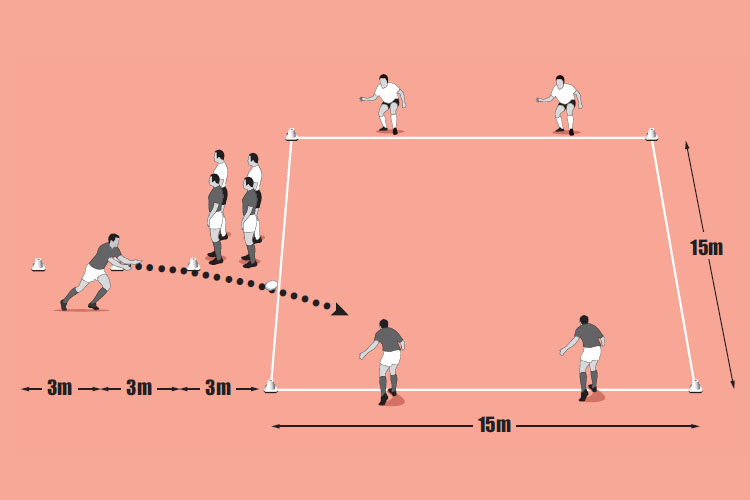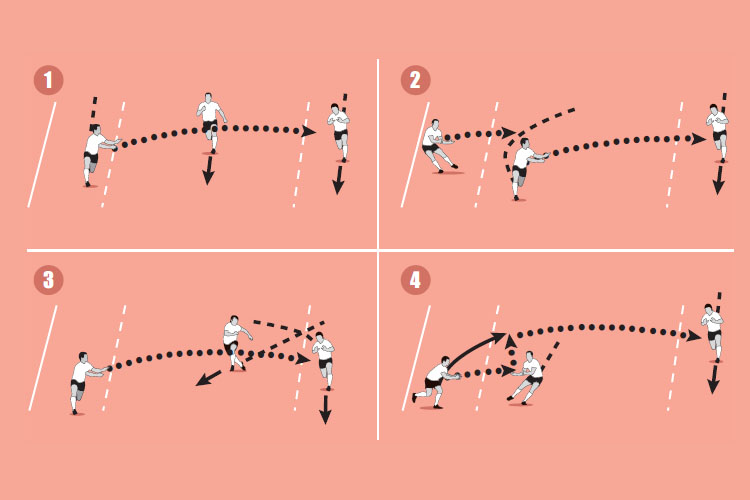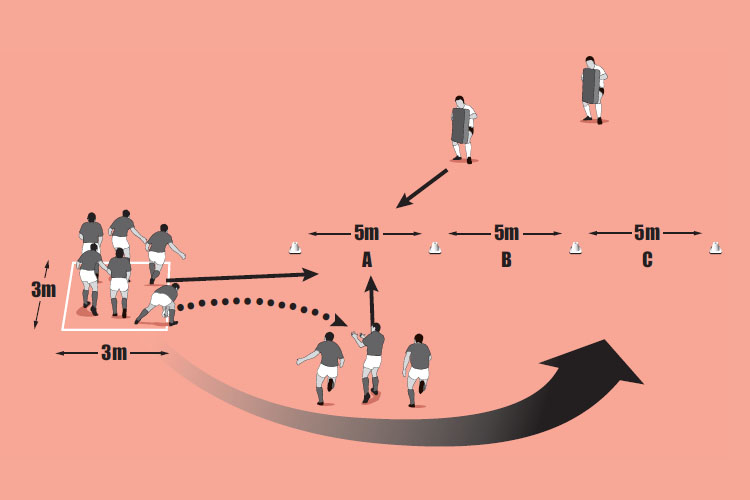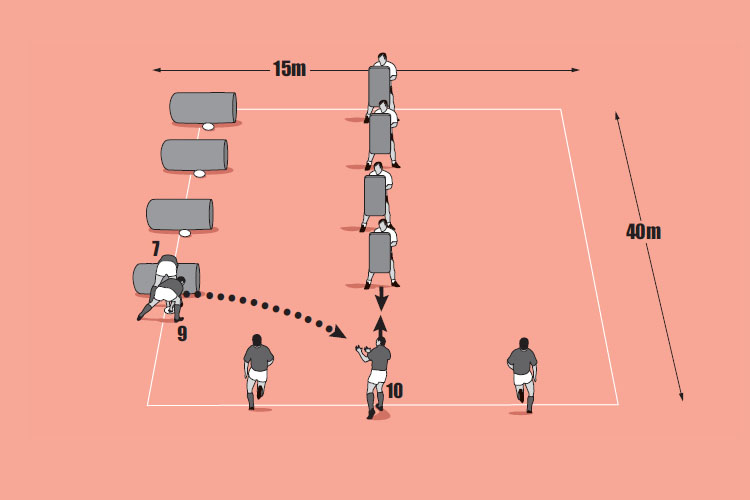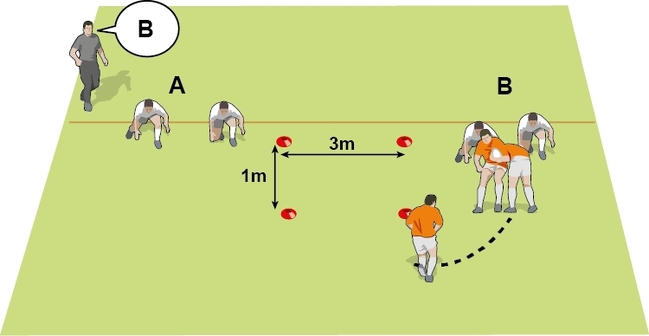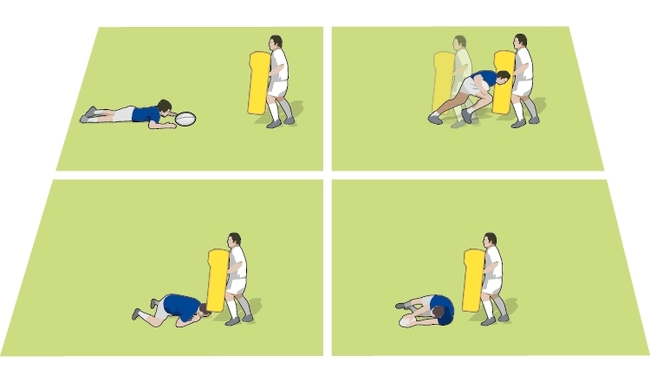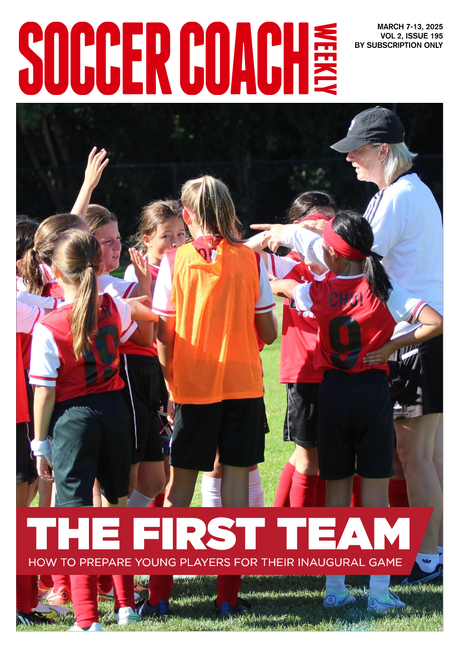Clever counter rucking
Ball recycling at the breakdown can be so quick that some attacking sides only commit a couple of players. A quick-thinking defender can spot a poorly positioned attacker and push him off balance or disrupt quick ball. This session will teach your players when to counter ruck.
Warm up time: 5
Session time: 8-12
Development time: 8-12
Game time: 8-12
Warm down time: 7
What to think about
Counter rucks have some risk and reward attached to them. When he counter rucks, the defender takes himself out of the defensive line. Your side can counter ruck early in the game to make the attack commit more resources to the breakdown throughout the game. Alternatively, they can hang back from counter rucking until a set moment in a game. Then the element of surprise can work effectively.set-up
- Look at the body profile of the attacker over the ball. Leave him if he is well set.
- Attack over the ball if there is a chance to counter ruck. Get under his chest and drive him back.
What you get your players to do
Stand a tackle tube next to the ruck pad and ball. One player pushes the tube on to the ruck pad and then sits on it. As the pad falls and lands it provides either a good target to drive back or sits too low. A defender opposite the pad decides whether to drive in and push the tube back or leave it alone. Add another ruck pad to add height to the drop or width so the tube can roll a little left or right.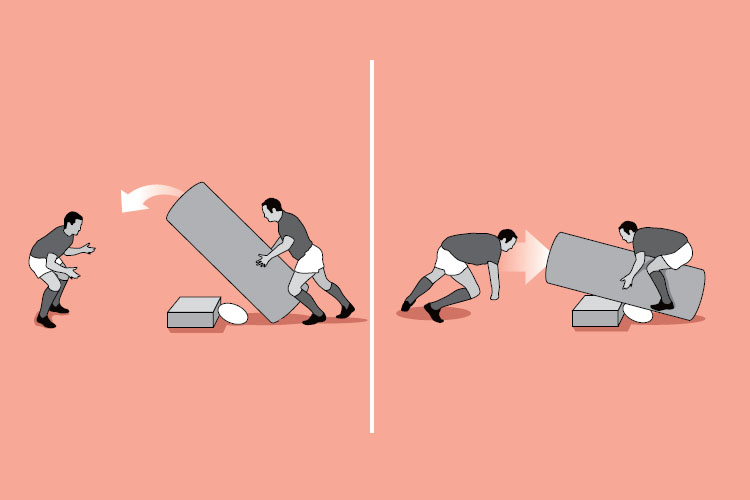
Development
You can play a game where the defender has three “drops” to decide whether to drive the fallen tube back. He scores a point if he can drive over the ball while still holding the tube. If he makes an attempt and fails, he loses a point and swaps with the player holding and letting the tube fall. If he makes no attempt in three, then the tube holder and defender swap without any points gained or lost. The one with most points wins.Related Files
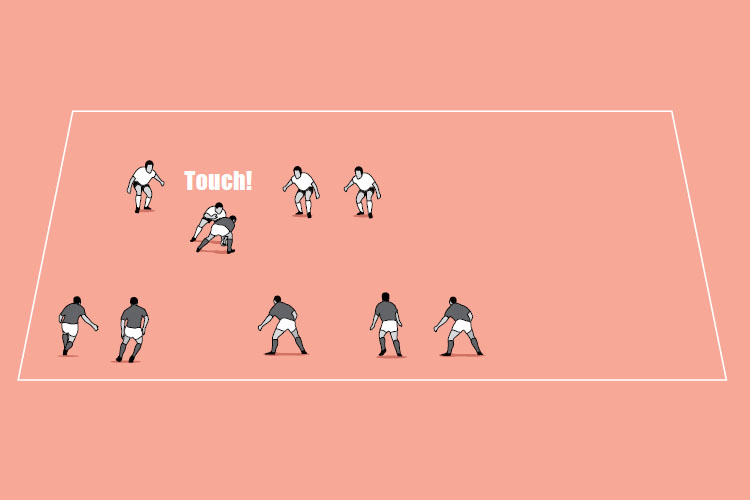
Game situation
Split into teams of six. Start the defending team with two of their players on the sideline to create a 6v4 touch rugby game. If a ball carrier is touched in possession, he falls to the ground. There is a contest over the ball. The attacking side can put in a maximum of two players. If there is a turnover, restart in the middle of the area. The new attack has six players and defence must rest two players.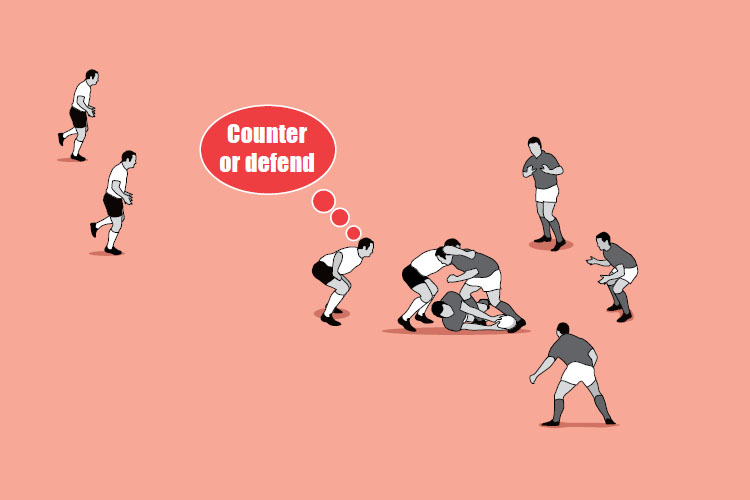
What to call out
- “Start from a low position”
- “Drive over the ball, staying on your feet”
- “Don’t commit unless to detect a weakness!”
Newsletter Sign Up
Coaches Testimonials

Gerald Kearney, Downtown Las Vegas Soccer Club

Paul Butler, Florida, USA

Rick Shields, Springboro, USA

Tony Green, Pierrefonds Titans, Quebec, Canada
Subscribe Today
Be a more effective, more successful rugby coach
In a recent survey 89% of subscribers said Rugby Coach Weekly makes them more confident, 91% said Rugby Coach Weekly makes them a more effective coach and 93% said Rugby Coach Weekly makes them more inspired.
Get Weekly Inspiration
All the latest techniques and approaches
Rugby Coach Weekly offers proven and easy to use rugby drills, coaching sessions, practice plans, small-sided games, warm-ups, training tips and advice.
We've been at the cutting edge of rugby coaching since we launched in 2005, creating resources for the grassroots youth coach, following best practice from around the world and insights from the professional game.




